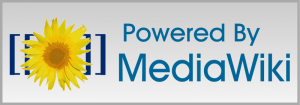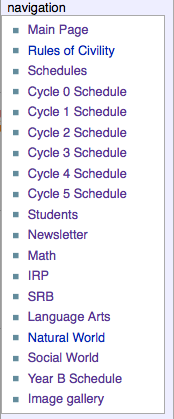One of the most significant developments of the information revolution has been the creation of the online encyclopedia Wikipedia and the software that makes it possible. Wikipedia has democratized the creation and sharing of information. Anyone can edit the encyclopedia, and anyone can access and adapt the information by observing simple and free license. And the information in Wikipedia is remarkably accurate, comparable to the Encyclopedia Britannica (Giles, 2005).
The democratic creation and sharing of information shares much with the ethos of Montessori. There is a respect for the participation of anyone who wishes to contribute, contained within strong mechanisms for self-correction.
The basis for this success is the Wiki website software. There are quite a number of stand-alone or software suites that allow the creation of wikis. Wikimatrix, (2010) provides an extensive list, as well as questionnaires that offers suggestions about which wiki would best meet different users’ needs. Mediawiki, the software used by Wikipedia, is designed to be open and allow easy editing, while others give users and administrators greater control of what anyone can see and change.

Based on its reliability, as proven by its ubiquity on the internet, its cost (free) and its ease of editing, I have chosen to use Mediawiki for my middle school wiki. The only significant difference from the standard Wikipedia installation is that I have password-protected access past the front page of the wiki to anyone not in the class. Once past the front page, a world of creation and community sharing opens up.
I have been using the wiki extensively for the last two years, and it is the central point of reference for my class. Students write their assignments on the wiki, they can find out what’s on the study-guides on the wiki, they often use it to communicate with their peers, and they have access to all the information and presentations created by their peers so they have a database of knowledge directly relevant to what we’re studying in the class.

As a teacher, I believe our class wiki is one of the most powerful additions to the classroom community. It has been a great organizational aid for myself as well as the students. Presentation notes, video, reading assignments are all linked directly to the relevant study-guide. It drastically reduces the amount of paper necessary to hand out and to keep organized, which is especially important with our two-year cycle of work.
Yet, as with any type of new technology, it is important to get other, independent perspectives on the efficacy of the wiki. There are potential issues. Reaching the diversity of learning styles is an important element of teaching.
Assessment is, by necessity, an ongoing project. I will start by surveying my students to investigate how they use the wiki perceive its utility. The outcome of this investigation should provide guidelines for how the wiki needs to be adapted to be most useful and guide future research.